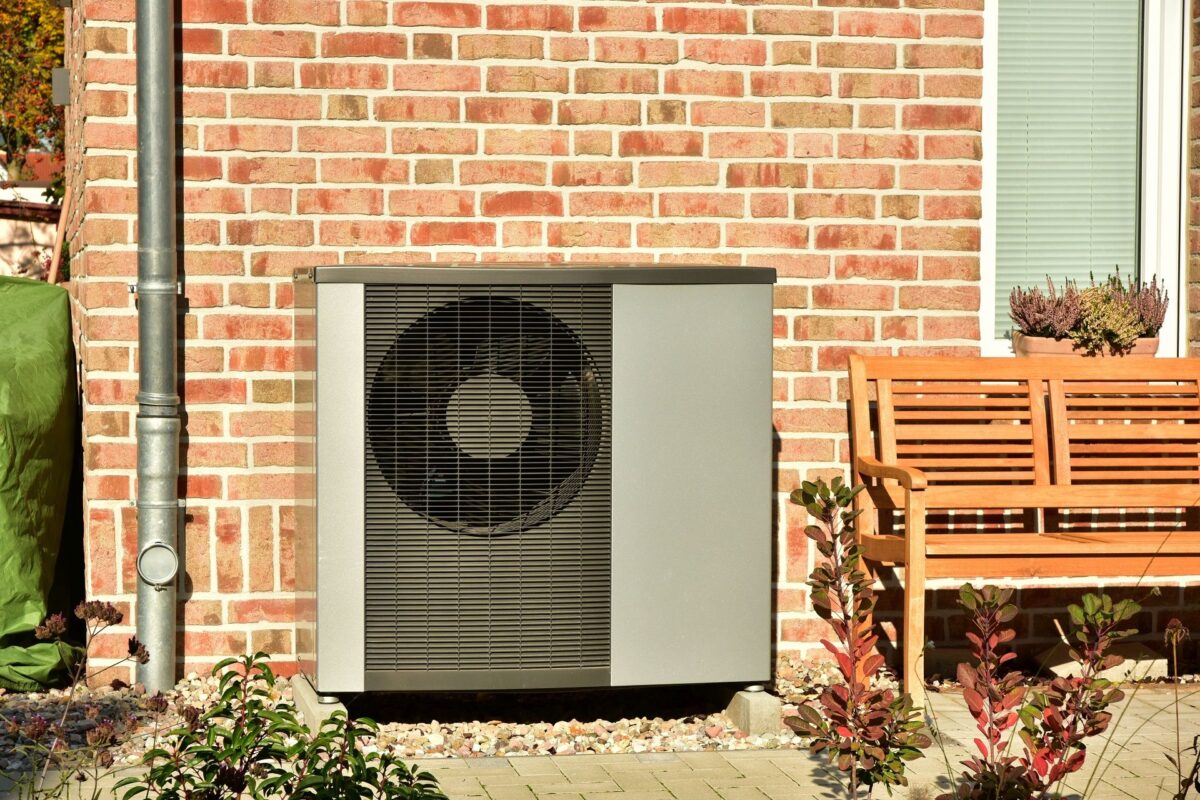Air Conditioning Explained – Does HVAC Use Gas Or Electricity?

An HVAC is one of the most important appliances for almost every Florida citizen. After all, without them, our homes would become as inhospitable as a jungle. At the same time, many homeowners are unfamiliar with how their HVAC systems work and get confused when something goes wrong.
For example, it’s not uncommon for some to look at their bill and wonder does HVAC use gas or electricity.
As simple as it seems on the surface, the truth is a bit more complex because the term air conditioning is often used to describe various things. As such, it tends to cause all sorts of confusion.
Let’s dive deeper into the matter – by the end of this article, you’ll become a bonafide AC expert!
How Do Air Conditioners Even Work?
Despite the fact that your air conditioner has many different components, the main contributor to the cooling cycle is a chemical – refrigerant.
Refrigerants have a particular set of properties that allow them to condense and evaporate once the pressure changes. When this happens, refrigerant, in its liquid form, can lower in temperature to absorb the heat from the room or get hotter in order to radiate off the heat it absorbed.
In technical terms, this is how this heat exchange process works:
The compressor pressurizes the refrigerant, turning it into a dense gas brimming with heat. The heat will then radiate away from the condenser coils, which changes the form of the refrigerant from a gas to a liquid. In liquid form, the refrigerant goes through an expansion valve which drops the pressure, consequently dropping the pressure of the liquid itself.
As a result, the coils are cooled down and once the fan blows the air over them, they will cool too. The refrigerant will then warm up and evaporate, entering the compressor and restarting the whole cycle.
The only ‘’gas’’ involved in this process is the refrigerant itself and everything else happens through the wonders of electricity. So why do people even wonder does HVAC use gas or electricity?
The answer might be surprising – it’s not uncommon for the term gas-powered air conditioning to pop up. That’s the kicker as it refers to the air conditioning and not an air conditioner.
What Does Air Conditioning Refer To?
Now that the question of does HVAC use gas or electricity is out of the way, it’s time to clear up the confusion. When referring to an AC unit or an air conditioner, most people think about a heat exchange system that uses refrigerant as the main method of heat transfer.
With that said, it’s common to use the term “air conditioning” in a general way when describing any technique for increasing air comfort. For instance, air conditioning refers to both a furnace that warms cold air but also an air conditioner that cools hot air.
A furnace is a unit that burns fuel oil or gas to heat the air, which is then expelled through the ducts into different areas of your home. So technically, while no air conditioner uses gas, you’d still be correct if you called a furnace gas-powered air conditioning.
What Are Central Air And Heating?
We mentioned how the confusion over the question does HVAC use gas or electricity is not that uncommon, but many people are also confused about other terms. For example, the terms “central air conditioning”, “central AC”, and “central air” are quite confusing and interchangeably used.
In short, central air is an umbrella term to describe any appliance which uses forced air, such as the furnace. It can be powered by gas, fuel, or electricity – it doesn’t matter, it’s still called “central heat”.
Here is the confusing part: central AC and central air conditioning refer to a system that uses refrigerant to cool the air in a central location and pushes the air through the home using the same ductwork system the furnace uses.
Thus, when you abbreviate the full phrase to just central air, many people inadvertently confuse the central cool and heating systems.
What About Recharging The Gas In Ac Units?
In addition, it’s not rare to hear people discuss the act of recharging the gas in an air conditioner. As such, this may be a possible source of confusion and a major contributor to the question of does HVAC use gas or electricity.
The aforementioned act is just adding more refrigerant into an AC unit that developed a refrigerant leak.
Although furnaces combust gas to heat the air, the gas/refrigerant in the air conditioner doesn’t go anywhere. AC units are sealed to keep refrigerant from escaping and to ensure there’s always the correct amount of refrigerant necessary for proper cooling performance.
Do Evaporative Coolers Use Refrigerant To Cool The Air?
Even if these devices are not a good match for the Florida humidity, many homeowners in the less-humid northern part of the state sometimes use them when the weather is unbearable.
These units are a type of portable air conditioner that uses evaporating water to cool the air. Because they evaporate the water to drag the heat from the air, they don’t need refrigerant. Consequently, they also don’t need a bulky compressor, which is why their form factor is significantly smaller.
But how can water cool the air?
Simple – evaporating water turns into a gas and the particles highest in energy leave the water first. The result is a drop in the temperature.
Choosing The Right Unit For Your Air Conditioning Needs
Hopefully, this post erased a lot of confusion for you and you now have some extra appreciation for what your air con does.
If you’re in the market for an HVAC and you don’t know which type of unit is the best for your home, feel free to reach out to Aztil Air Conditioning. Our experts have been at it for decades, and you only need to say what you want to achieve to find the right type of unit.
Whether you’re looking for something that only cools, helps you feel warmer during the winter, or maybe just a unit to will cool one room, we’ve got covered – we will provide you with expert advice so you can get the best value for your money.
Call (888) 729-8452 or fill out our contact form to speak to one of our air conditioning experts.












